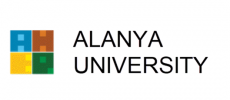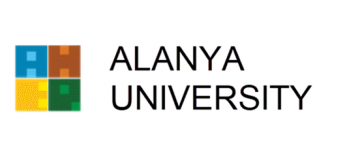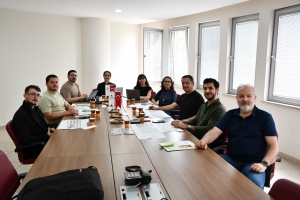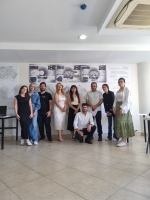As part of the ‘Palimpsest Cities: Alanya’ course with our Architecture Department students, we organized a gamified field trip to Kızılkule and Tersane under the coordination of our cours...
Architecture (with Thesis) -Turkish
» Bologna Information Package
» Compulsory Courses - Elective Courses
» Documents and Forms
» Postgraduate thesis writing guide
» Application Guide
Head of Department
Dr. Faculty Member Elif Gizem Yetkin
Program Director
Dr. Faculty Member Elif Gizem Yetkin
Objectives
The aim of the master's program in architecture is to explore and examine the interdisciplinary relationship between architecture, design, and urban design. Master's students in architecture are expected to produce a master's thesis based on scientific research on an original topic of their choice after completing the compulsory and elective courses related to their chosen field.
Goals
The Alanya Hep University Architecture Master's Program aims to develop and deepen the design knowledge and skills acquired during undergraduate education in line with students' interests. It aims to provide an interactive relationship between theory and professional practice and to facilitate the transfer of theoretical knowledge to professional life.
Degree to be Obtained
This program offers education at the master's level. Students who successfully complete this program are entitled to receive a Master's Degree in the field of Architectural Design Master's Program in the USA.
Architecture (MA) (With Thesis) - Program Information
| Language | Turkish |
| Duration (Years) |
2 |
| Maximum Duration (Years) |
4 |
| Quota |
|
| Internship Status | None |
Program Content
The purpose of establishing the Architecture Master's Program is to impart scientific research and working capabilities to graduates of architecture and related fields - such as interior architecture and environmental design, landscape architecture, industrial design. To this end, students are supported to develop their understanding of their research areas and to grasp interdisciplinary interaction, providing sufficient knowledge level, using advanced theoretical and practical knowledge, as well as developing skills such as solving problems encountered using research methods, independent working ability, developing new and strategic approaches, as well as taking on leadership roles, critical thinking, and directing the learning process according to their interests. Graduates of the Alanya University Architecture Master's Program will be competent to participate in national and international scientific research and development projects, as well as receive world-class education. It is aimed that the program graduates are admitted to doctoral programs at national and international universities according to their preferences and make high-quality scientific studies thanks to the education received at Alanya University.
History
Master's education has been offered since 2016. Since this date, master's education has continued at the Alanya HEP University Faculty of Architecture.
Degree Obtained
This program offers education at the master's level. Students who successfully complete this program are entitled to receive a Master's Degree in the field of Architectural Design Master's Program in the USA.
Admission Requirements
Applications for the Architecture Master's program with thesis are made based on the following principles:
The candidate applying for the master's program with thesis must have a bachelor's degree from one of the programs of Architecture, Interior Architecture, Interior Architecture and Environmental Design, Landscape Architecture, Urban and Regional Planning, Industrial Product Design.
The candidate must have at least 60 points in the score type of the program they are applying for from the centrally conducted ALES by the Measurement, Selection, and Placement Center (ÖSYM).
Candidates for graduate education in a science field related to a foreign language must have a document showing that they have taken a central foreign language exam accepted by the Higher Education Council (YÖK) or an international foreign language exam equivalent to these exams in a foreign language other than their field. A minimum language score threshold can be set by the departments.
In departments where education is conducted in a foreign language, the candidate must have a document showing that they have scored at least 55 points unless a higher score is determined by the departments.
If the candidate is an international student, the application must comply with the procedures and principles determined by the Senate.
Advancement to Higher Levels
Students who successfully complete the master's education can study in doctoral programs in their field or related fields.
Graduation Requirements
To graduate from this program, a total of at least 120 ECTS credits must be successfully completed, including at least 8 courses and a thesis work, including a seminar course within an academic year, and other conditions set by the Senate for graduation must also be met.
Employment Opportunities
The program aims to reflect the global development of the discipline through research, particularly those arising from specific local contexts. Graduates are targeted to play an active role as experts who can participate in the new formations of the profession. Graduates of the program can work as faculty members at universities, and as high architects in architectural offices, construction sites, and public offices.
Assessment and Evaluation
ARTICLE 24 - (1) A letter grade is given for each course at the end of the registered period.
(2) This letter grade is at the discretion of the instructor.
(3) In determining the letter grade, the student's performance in mid-term exams, final exams, and semester activities, as well as attendance to classes and practices are considered.
(4) Courses for which an exemption exam is given, the conditions necessary for exemption, and the application principles are determined by the proposal of the relevant academic board and the decision of the Senate.
(5) The coefficients, points, and statuses of the letter grades included in the grade averages are specified below:
a) (Amended RG 14.04.2017/30038)
Letter Grade Coefficient Point
AA 4.00 90-100
BA 3.50 80-89
BB 3.00 70-79
CB 2.50 60-69
CC 2.00 50-59
DC 1.50 45-49
DD 1.00 40-44
FD 0.50 35-39
FF 0.00 0-34
NA 0.00
Non-included grades are specified below:
Letter Grade Status
S Successful
U Unsuccessful
I Incomplete
P Continued
b) NA (absent) grade is determined for one of the following reasons and is treated as an FF grade in grade averages:
Failure to meet the attendance obligations specified in the course syllabus for theoretical and practical hours,
Failure to meet the obligations related to the course specified in the syllabus, thus not qualifying to take the end-of-term exam,
Not participating in any of the midterm exams and end-of-term exams,
c) Non-included grades are specified below:
S (successful) grade is given to students who succeed in creditless courses,
U (unsuccessful) grade is given to students who fail in creditless courses,
I (incomplete) grade is given to students who, with a valid reason accepted by the instructor, fail to meet the necessary conditions for the course by the end of the term. The I grade must be converted to a letter grade within a week after the date of the final grades being issued. However, in special cases, this period can be extended until the start date of the next term's interactive registrations, and by the end of this period, it must be converted to a letter grade. These transactions in special cases are carried out by the proposal of the department chair of the course offered and the decision of the faculty board of directors to which that department belongs. An I grade not converted within the period automatically turns into an FF or U grade. Dates related to the I grade are specified in the academic calendar,
P grade is given to students who are continuing their thesis course.
(3) Students who are unable to attend the end-of-term exam due to a valid excuse and whose excuse is accepted by the Institute's Board of Directors are given the right to take an exam. The dates of the excuse exams for these students are determined by the Institute Board of Directors.
(4) Specialty area courses and seminars are evaluated as successful or unsuccessful and do not contribute to the general grade average.
(5) Graduation grade averages are calculated based on the 4-point system. Different grade units are converted based on the YÖK grade conversion table.
Program Profile
The areas of expertise and scope of architecture are transforming with the development of computer technologies, the emergence of globalization and sustainability concepts, and new research areas are emerging. The courses in the architecture master's program emphasize contemporary theory and critiques related to architectural production, as well as the relationship between architecture and other disciplines.
The program is structured in a trans-disciplinary specialty area that students need to choose following their admission.
• Architectural Theory and Criticism
• Architectural Education
• Cognitive Processes in Architecture
• Technology and Architectural Research
• Urban Space Research
• Socio-Cultural Research
• Cinema and Space Research
• Design Methods and Applications
• History of Architecture
• Cultural - Archaeological Heritage and Conservation
• Building Physics and Applications
• Building Systems and Material Research
• Energy Efficient Design
• Sustainable Architecture
• Principles Related to Professional Organization in Architecture
• Construction Management
Admission Conditions
Applications for the Architecture Master's program with thesis are made based on the following principles:
The candidate applying for the master's program with thesis must have a bachelor's degree from one of the programs of Architecture, Interior Architecture, Interior Architecture and Environmental Design, Landscape Architecture, Urban and Regional Planning, Industrial Product Design.
The candidate must have at least 60 points in the score type of the program they are applying for from the centrally conducted ALES by the Measurement, Selection, and Placement Center (ÖSYM).
Candidates for graduate education in a science field related to a foreign language must have a document showing that they have taken a central foreign language exam accepted by the Higher Education Council (YÖK) or an international foreign language exam equivalent to these exams in a foreign language other than their field. A minimum language score threshold can be set by the departments.
In departments where education is conducted in a foreign language, the candidate must have a document showing that they have scored at least 55 points unless a higher score is determined by the departments.
If the candidate is an international student, the application must comply with the procedures and principles determined by the Senate.
Advancement to Higher Levels
Students who successfully complete the master's education can study in doctoral programs in their field or related fields.
Graduation Requirements
To graduate from this program, a total of at least 120 ECTS credits must be successfully completed, including at least 8 courses and a thesis work, including a seminar course within an academic year, and other conditions set by the Senate for graduation must also be met.
Recognition of Prior Learning
Students who have completed their undergraduate education can apply for the master's program. The acceptance of students is examined and evaluated individually according to the conditions of each student and the degree applied for, within the current regulations before the start of the term.
Qualification Conditions and Rules
Students enrolled in this program must take a minimum of 7 local credit courses, one seminar course, and a thesis, and must have completed 120 ECTS credits.
Employment Opportunities
The program aims to reflect the global development of the discipline through research, particularly those arising from specific local contexts. Graduates are targeted to play an active role as experts who can participate in the new formations of the profession. Graduates of the program can work as faculty members at universities, and as high architects in architectural offices, construction sites, and public offices.
Program Competencies
Program Learning Outcomes: Upon successful completion of this program, students will be able to:
1 Use scientific research methods to access information
2 Compile accessed information, interpret and evaluate it with a critical thought
3 Develop the architectural knowledge based on undergraduate competencies
4 Combine concepts and knowledge from different disciplines to access, compare, and critique different knowledge fields
5 Grasp the interaction between the architecture field and other disciplines and apply the assimilated knowledge and analytical skills in interdisciplinary studies
6 Be aware of different cultures, global and historical perspectives, and serve the community through continuous and responsible behavior
7 Use the expertise-level knowledge acquired in the field of architecture in theory or practice
8 Independently formulate an architectural problem, evaluate the results, and relate them to the application
9 Communicate current developments in the field of architecture and their own work systematically in written, oral, and visual forms to groups within and outside the field
10 Examine spatial relationships and the social norms guiding them with a critical perspective, and develop proposals to change them if necessary
11 Monitor and communicate societal, scientific, and ethical values during the collection, interpretation, and announcement stages of data related to the field of architecture.






